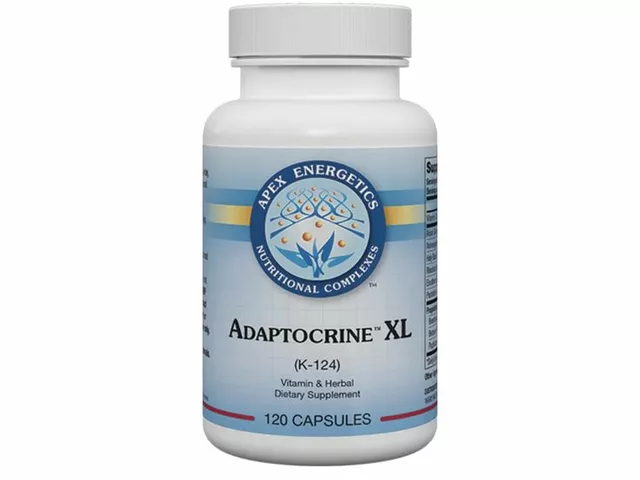
Pregnancy Hypertension Quiz
Hypertension in Pregnancy is a medical condition marked by a sustained blood pressure reading of 140/90mmHg or higher after 20 weeks of gestation. It can appear as new‑onset gestational hypertension, coexist with chronic hypertension, or evolve into preeclampsia. Understanding the risks, how to prevent it, and the best ways to manage it can keep both mum and baby safe.
Quick Takeaways
- Screen blood pressure at every prenatal visit; early detection cuts complications.
- Low‑dose aspirin (81mg) before 16weeks reduces preeclampsia risk for high‑risk women.
- Labetalol, methyldopa, and nifedipine are the three most studied antihypertensives for pregnancy.
- Lifestyle tweaks - diet, weight control, moderate exercise - make a noticeable difference.
- Close monitoring of fetal growth and maternal labs is key to catching problems early.
What Types of Pregnancy‑Related Hypertension Exist?
Three main categories are talked about in obstetric circles:
- Gestational hypertension is a new elevation in blood pressure after 20 weeks without proteinuria or organ dysfunction.
- Chronic hypertension is a pre‑existing high blood pressure diagnosed before pregnancy or before 20 weeks gestation.
- Preeclampsia combines hypertension with proteinuria or systemic signs (liver, kidneys, brain) after 20 weeks.
While gestational hypertension often resolves after delivery, chronic hypertension can persist and raise the baseline risk for preeclampsia. Recognizing the differences helps tailor monitoring and therapy.
Why It Matters: Risks to Mother and Baby
Uncontrolled hypertension is a leading cause of maternal mortality worldwide. According to WHO data, severe hypertension contributes to roughly 15% of pregnancy‑related deaths. For the baby, high maternal pressure can shrink placental blood flow, leading to fetal growth restriction, preterm birth, or even stillbirth.
Common complications include:
- Placental abruption - the placenta separates prematurely, causing massive bleeding.
- Acute kidney injury - proteinuria spikes, labs worsen.
- Maternal stroke - especially with severe systolic >160mmHg.
- Neonatal intensive care admission - often due to prematurity or low birth weight.
Understanding these stakes pushes both clinicians and expectant moms to act early.
Preventing Hypertension‑Related Problems
Prevention is a blend of risk‑factor control, early screening, and evidence‑based interventions.
Identify High‑Risk Women
Key risk factors include:
- Pre‑pregnancy BMI≥30kg/m²
- Pre‑existing diabetes (type1 or 2)
- Family history of preeclampsia
- Age≥35years
- Multiple gestation (twins, triplets)
Women ticking two or more boxes benefit most from preventive measures.
Low‑Dose Aspirin
Guidelines from ACOG and WHO recommend 81mg of aspirin nightly from 12‑16weeks until 36weeks for high‑risk patients. Meta‑analyses show a 10‑15% absolute risk reduction for preeclampsia.
Lifestyle Tweaks
Simple steps make a measurable impact:
- Salt intake <3g/day (about half a teaspoon).
- Balanced diet rich in fruits, vegetables, whole grains.
- Moderate exercise - 150minutes of walking or swimming per week.
- Weight gain according to pre‑pregnancy BMI (7‑11kg for normal weight).

How to Monitor Blood Pressure Effectively
Regular monitoring is the cornerstone of safe management. Blood pressure monitoring involves taking both systolic and diastolic readings using a validated cuff, ideally at the same time of day each visit.
Best practices:
- Measure after 5minutes of seated rest.
- Take two readings 1‑2minutes apart; record the average.
- Home monitoring can supplement clinic visits; educate patients on cuff size and technique.
When readings consistently exceed 150/100mmHg, escalation to medication is recommended.
Medications Safe for Pregnancy
Not all antihypertensives are created equal. Below is a quick comparison of the three agents most often used.
| Drug | Onset of Action | Pregnancy Category (US) | Typical Dose (mg) | Key Safety Note |
|---|---|---|---|---|
| Labetalol | 30‑60min (oral) | Category C | 100‑200mg BID | Beta‑blocker; monitor heart rate, avoid abrupt withdrawal. |
| Methyldopa | 6‑8hr (oral) | Category B | 250‑500mg TID | Older drug; can cause sedation, liver enzymes rise. |
| Nifedipine | 15‑30min (oral) | Category C | 10‑20mg TID (extended‑release) | Calcium‑channel blocker; watch for edema, tachycardia. |
Choice depends on severity, patient tolerance, and co‑existing conditions (e.g., asthma favors labetalol). All three have strong safety records when used under obstetric supervision.
When to Escalate Care
- Systolic≥160mmHg or diastolic≥110mmHg - start medication immediately.
- Rapid rise (>30mmHg over 24hrs) - consider hospital admission.
- Signs of organ dysfunction (headache, visual changes, epigastric pain) - treat as severe preeclampsia.
Managing the Whole Pregnancy Journey
Effective treatment blends medication, monitoring, and coordinated care.
First Trimester
Screen for chronic hypertension, counsel on low‑dose aspirin if high‑risk, and begin gentle exercise plans.
Second Trimester
Most cases of gestational hypertension appear here. Increase visit frequency to every 2‑4weeks, track urine protein, and adjust meds as needed.
Third Trimester
Close surveillance for preeclampsia is critical. Daily blood pressure logs, weekly fetal growth ultrasounds, and a delivery plan (often 37‑38weeks for controlled hypertension) keep things on track.
Post‑Delivery
Blood pressure often spikes in the first 48hours after birth. Continue medication for at least 6weeks, then reassess for chronic hypertension.
Related Topics You Might Explore Next
If you found this guide useful, you may also want to read about:
- Maternal mortality trends and how hypertension contributes.
- Fetal growth restriction - detection and management.
- Placental abruption - warning signs and emergency response.
- Guidelines from WHO and ACOG on hypertensive disorders of pregnancy.
Frequently Asked Questions
What blood pressure level defines hypertension in pregnancy?
A reading of 140mmHg systolic or 90mmHg diastolic taken on two separate occasions after 20weeks gestation meets the definition. Severe hypertension is usually set at 160/110mmHg.
Can I take aspirin safely while pregnant?
Yes, low‑dose aspirin (81mg) is recommended for women at high risk of preeclampsia. It should start between 12‑16weeks and continue until about 36weeks. Always discuss with your obstetrician first.
Which antihypertensive is best for a first‑time mom?
Labetalol is often the first choice because it lowers both systolic and diastolic pressure quickly and has a solid safety record. Methyldopa is an alternative if a beta‑blocker isn’t tolerated. The final decision rests with your care team.
How often should I check my blood pressure at home?
Aim for twice daily - once in the morning and once in the evening - especially after 20weeks. Record the values in a log and share them with your doctor at each visit.
What are the warning signs of preeclampsia?
Sudden severe headache, visual disturbances (spots, flashing lights), upper‑right abdominal pain, rapid swelling of hands or face, and a sudden jump in blood pressure. If any appear, call your healthcare provider immediately.
Is it safe to exercise when I have hypertension?
Moderate activities like walking, swimming, or prenatal yoga are encouraged, provided your blood pressure stays below 150/100mmHg during exercise. Avoid high‑intensity or heavy‑lifting workouts without medical clearance.




Kyle Tampier
September 23, 2025They say low-dose aspirin prevents preeclampsia... but who funded the studies? Big Pharma loves pushing pills over lifestyle changes. I’ve seen moms heal with just magnesium, lemon water, and no meds-yet doctors won’t tell you that. They’re paid to prescribe, not to empower.
Tom Caruana
September 23, 2025OMG I had preeclampsia and they gave me labetalol and I cried for 3 days 😭 my husband said I looked like a zombie but at least my baby was fine 🤕💊 I wish someone told me to eat more kale and stop stressing but WHO CARES I’M ALIVE AND SO IS MY KID!! 🙌
Muzzafar Magray
September 25, 2025This is all nonsense. In my village in India, women never check blood pressure. They eat spicy food, carry water buckets, walk miles, and deliver healthy babies. Modern medicine overcomplicates everything. You don’t need aspirin-you need resilience.
Renee Williamson
September 26, 2025Wait so they’re saying I’m supposed to take ASPIRIN while pregnant??? Like, the same stuff my dad takes for his heart?? And they just hand it out like candy?? What if I’m allergic?? What if it causes autism?? I’m not taking it. I’m going to eat organic turmeric and chant affirmations instead. #NaturalBirth #NoChemicals
Manish Mehta
September 28, 2025Good guide. Simple and clear. I read it to my wife. She felt better knowing what to watch for. We check BP every morning now. No drama. Just care.
Okechukwu Uchechukwu
September 29, 2025Let’s be real: hypertension in pregnancy isn’t a medical condition-it’s a symptom of a broken system. Women are pressured to be perfect mothers while being ignored by a healthcare system that values metrics over humanity. You can’t fix preeclampsia with a pill if you can’t fix poverty, stress, and systemic neglect. The real cure is dignity.
Sarah Cline
September 30, 2025You got this, mama! 🌸 Even if your BP is high, you’re still doing amazing. Walk every day, drink water, rest when you can, and don’t feel guilty for needing help. You’re not failing-you’re fighting. And your baby feels your strength every single day. You’re not alone!
Sierra Thompson
September 30, 2025It’s interesting how we medicalize natural processes. Pregnancy was never meant to be a monitored event with daily logs and pharmaceutical interventions. The body knows what to do. We just need to stop interfering unless absolutely necessary. Maybe the real risk isn’t hypertension-it’s our obsession with control.
Khaled El-Sawaf
October 1, 2025While the emotional appeals in this thread are understandable, the clinical data remains unambiguous: low-dose aspirin reduces preeclampsia incidence by 10–15%, and labetalol remains first-line due to its safety profile and pharmacokinetic stability in pregnancy. Dismissing evidence-based interventions in favor of anecdotal or ideological alternatives constitutes a failure of medical responsibility-not empowerment.